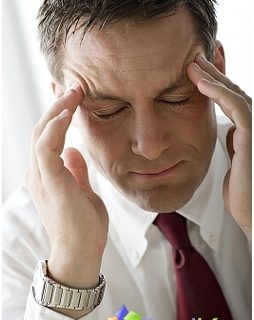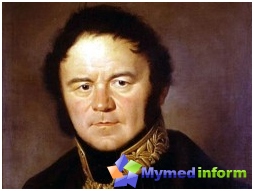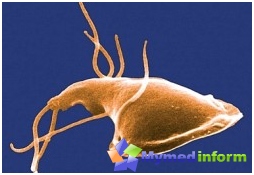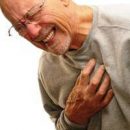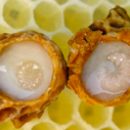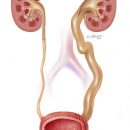The diagnosis seems anxious and frightening, but our site immediately wants to note that the diagnosis is often made without explicit grounds, and then it is removed. Secondly, it is not necessary to be considered a sentence and discouraged, because the children's body is endowed with amazing opportunities and abilities that allow you to fully heal. The main thing is, if the baby has nevertheless confirmed perinatal encephalopathy during surveys, then try to ensure good care and timely adequate and effective treatment.
The cause of some adult neurological ailments, such as hard migraine, hypertension, early Osteochondrosis, Neurocirculatory dystonia can be perinatal encephalopathy, detected in infancy, but not properly adjusted. Perinatal defeat at school age can provoke hyperactivity, development of attention deficit syndrome, Scoliosis, problems with motility and vision organs. Let's talk about the reasons that cause this pathology, signs that indicate it, methods of diagnosis and correction.
General information about perinatal encephalopathy
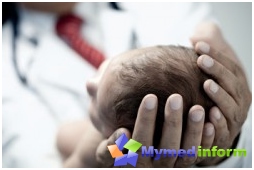
For the first time, this concept was proposed to introduce into the lexicon of medical workers in 1976, at the same time, a reduction was established - PEP. Word «Encephalopathy» collected from two Greek words meaning «brain» and «Violations». And the interval from the 28th week of pregnancy is considered the interval, when intrauterine development occurs, until the 7th day from the moment the baby appears. This term combines a fairly extensive group of syndromes, states and diseases of the nervous system of the fetus (or newborn), which are developing due to the action of damaging factors, sometimes even unexplained causes that have played a negative role in the period of tooling the woman of the fetus, during childbirth or in the first days Life of the newborn. Such discrepancy is most often due to factors accompanied by the injection of the developing and emerging fetus of an insufficient amount of oxygen. Such oxygen fasting doctors call hypoxia. In recent years, neonatologists and pediatricians also use other terms and names of neurological pathologies in children, but a collective name «Perinatal encephalopathy» also remains hearing.
To understand and objectively assess the condition of the newborn doctors helps a decatible apgar scale. The color of the skin, the state of cardiovascular, respiratory systems, the activity of the born, the severity of physiological reflexes. If low scores are recruited, i.e., the risk to the life of the baby or the development of neurological disorders. Sometimes it is necessary to urgently apply intensive therapy. But even if newborn high points, a number of symptoms of neurological disorders may appear even after the seventh day since the appearance of. It is important to take attention to the state of the baby to notice negative changes in behavior, similar to PEP manifestations. The toddler's brain is very plastic, therefore, if timely conduct therapeutic and corrective activities in a timely manner, it will be possible to avoid and prevent violations in the formation of emotions, behavioral reactions, cognitive activity.
For perinatal encephalopathy, 3 periods are distinguished:
- Sharp (this is the first month of the life of the baby).
- Recovery (in the long-time kids, it is calculated from the beginning of the second month to the 12th month of life, and the premature time is extended to 24 months).
- Exodus:
- Complete recovery;
- delay of motor, speech or mental development;
- MMD - minimal brain dysfunction is so deciphered, in which hyperactivity syndrome with a deficit (shortage) of attention may develop;
- Vegetative-visceral dysfunctions (violations of certain internal organs);
- neurotic reactions;
- hydrocephalus (the so-called brain molding);
- epilepsy (cramps);
- Cerebral palsy (deciphered as children's cerebral paralysis).
Why PEP occurs?
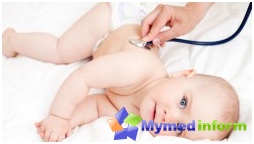
Perinatal lesions are noted on the basis of data on pregnancy and childbirth, as well as additional surveys, allowing to clarify the localization, features and degree of lesion of brain tissues. In the future, such surveys make it possible to judge whether the treatment tactic is effective.
- Neurosonography (abbreviated NSG) - allows you to estimate the state of the brain, its tissues, gives the idea of the character of brain lesions.
- The electroencephalogram is abbreviated (EEG) - helps to understand how the brain is functioning, whether there are deviations in development, whether the foci of epileptic activity is present.
- Electronomyography (abbreviated ENG) - the method allows you to determine if the child has neuromuscular diseases.
- Doppler - Shows the amount of blood current in the brain vessels.
There are other modern assistants in diagnosis, for example, CT, MRI.
In addition, the child will be examined by an ophthalmologist, an otorinolaryngologist, and, if necessary, and other children's experts.
The consequences of perinatal encephalopathy in preschool and school years
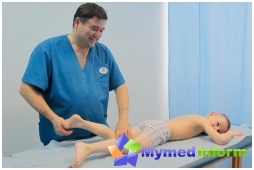
Doschwalls one of the late consequences of the PAP can be speech delay. There must certainly turn to a neurologist, a speech therapist, a psychologist to help the child. And in general, any delays in development can not be left without attention, so be sure to attend the precinct pediatrician under last time, express his doubts, anxiety. Do not hope that everything will pass «Self». In preschool age, such consequences of PEP are also stated:
- Stuttering, problems with speech;
- hyperactivity or, on the contrary, inhibition;
- excitability, irritability, sleep disorders;
- attacks of anger, rage, aggression to others, hysterics, other neurological and mental manifestations.
The trouble-free perinatal encephalopathy in school years can give such trouble:
- headaches;
- Violation of the letter (disgrave);
- Problems with reading (this is dyslexia);
- difficulties in the concentration of attention, fatigue from mental activity, non-persistence;
- reduction of thinking, memory, academic performance;
- conflicts with parents, teachers, especially in adolescence.
Recommendations for treatment
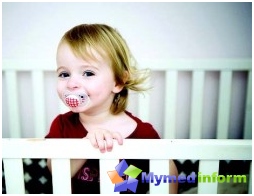
In the acute period of perinatal encephalopathy, newborns with severe and medium-sided pathologies of the brain and the nervous system need treatment in the hospital. If syndromes are manifested in a light form, then treatment is possible at home. Try to create a benevolent and relaxed atmosphere around the baby. Do not be discouraged, to panic or depression, if the diagnosis is raised at an early age, then much can be corrected. Task of parents: surround the baby with love, follow the recommendations of doctors, be patient. Often the doctor prescribes physiotherapy, healing physical culture, baths with medicinal infuses and champions (pine needles, oats, chamomile, oregano, a series) or with the addition of sea salt. Herbs with soothing, relaxing effects can be appointed inside ELKar, Glycine, New Passitis, Vitamin and Strengthening Syrups. Good results gives treatment with homeopath, osteopath.
If the child has elevated intracranial pressure, it is recommended to put something under the mattress so that the head is higher, herbs are prescribed with a diuretic effect or diakarb. In severe cases, at hydrocephalius, you have to resort to the help of neurosurgeons.
At Epilepsy The doctor picks up anticonvulsants. If required, drugs are prescribed, activating brain activity, improving its blood supply, for example, nootropyl, pantogam, vinpocetin, Actovegin, Encephol. Selection of drugs is carried out by a doctor individually for each small patient.
Even if in the future the state of health from the child stabilizes, the manifestations of the PAP will disappear, for the purpose of prevention, attend a neurologist periodically. Sometimes passing massage courses, if there are no contraindications, strengthen the child, increase immunity, develop fine motility, coordination of movements, mental activity, but do not allow overcoolness, overwork.



